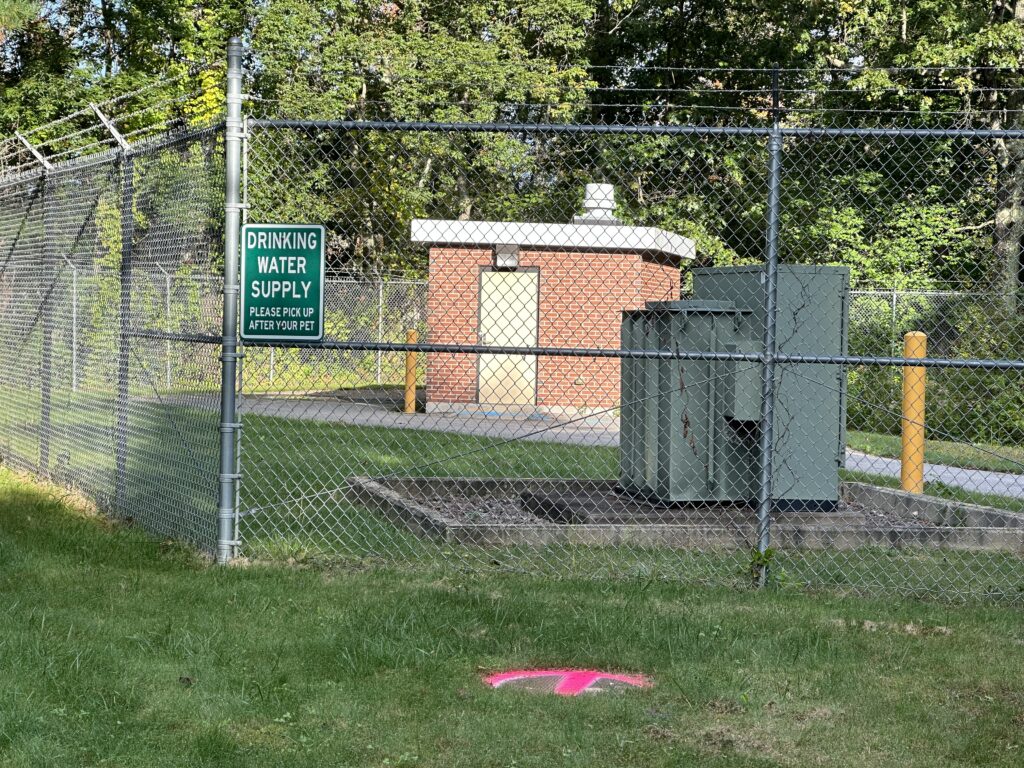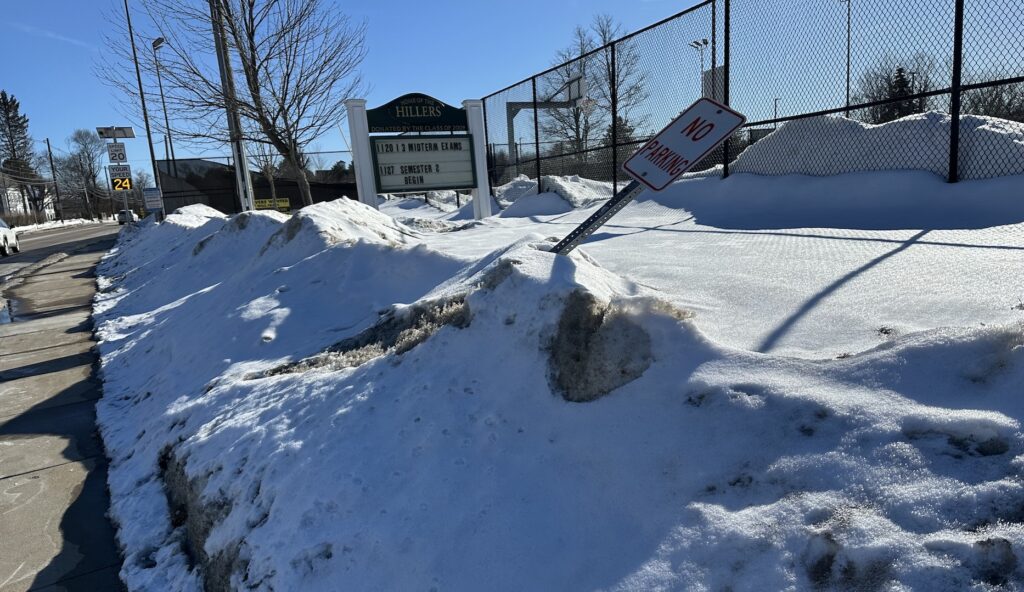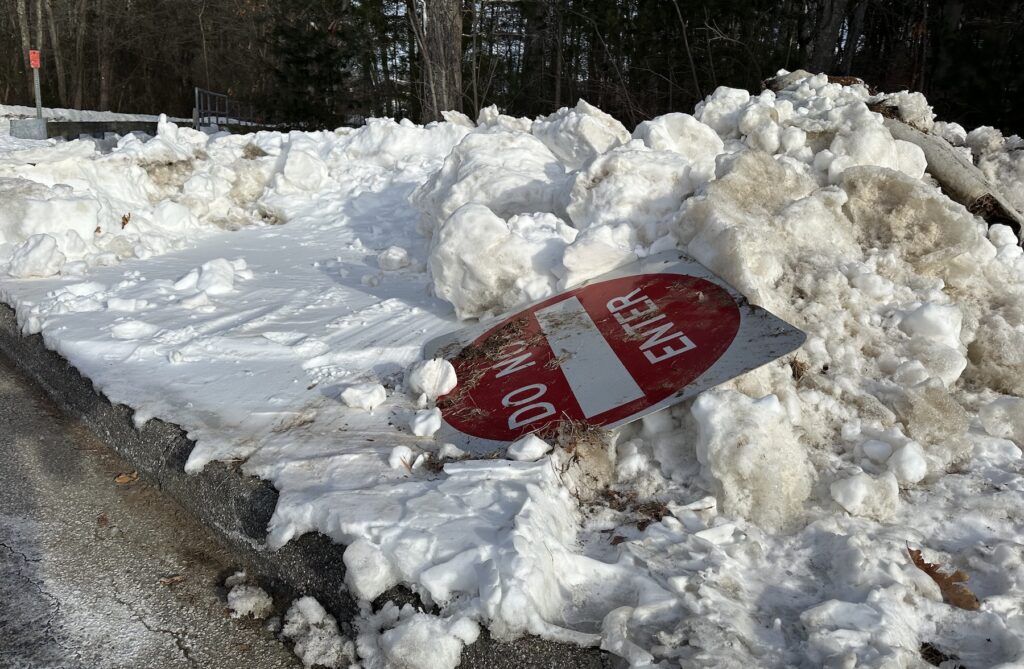Good morning, Hopkinton! Welcome to the daily update we call Hopkinton Today — a quick recap of yesterday’s news, highlights of what’s on tap, and a photo of the day.
Select Board weighs proposed article about PFAS reporting requirements for private wells

FILE PHOTO/JERRY SPAR
The Select Board is in the early stages of evaluating an article for this year’s Annual Town Meeting that would protect private well owners from mandatory PFAS reporting requirements.
Member Shahidul Mannan introduced the article during a Select Board meeting on Jan. 21.
“The idea is to encourage private well owners for individual testing but with the protection of disclosure requirements or legal obligations of remediation,” said Mannan.
According to a fact sheet from the Massachusetts Department of Environmental Protection, a PFAS rate above 20 parts per trillion will trigger required remediation under the Massachusetts Contingency Plan. Private well owners may incur the costs to resolve PFAS issues, depending upon the source of contamination.
The proposed article would shield homeowners with private wells from having to report test results to the state and incur the costs of remediation.
Mannan explained that part of the drive behind his proposal was a “don’t ask, don’t tell situation” in the town that he says is hampering long-term efforts to move forward on remediating PFAS issues. The article, if passed, would “encourage [residents] to do the testing and remediate if they can.”
Member Amy Ritterbusch expressed discomfort with the idea during the Jan. 21 Select Board meeting and again during a follow-up discussion on Feb. 4. She compared the situation to how property owners whose homes have lead or radon issues are required to disclose that information to future buyers.
Legal questions also make the future of the article uncertain. Mannan had said that the issue has been broached with town counsel, but more conversations were needed.
In an earlier interview with the Independent, Mannan expressed concern over perceived inaction on well testing. “If we are not aware and homeowners are not making the right decisions, it can lead to very significant adverse impacts on public health — five years from now, 10 years from now,” he said.
“I can’t imagine us sitting in the dark and doing nothing, and not even be aware of what’s in our water,” he added.
Latest News
This week’s Move in Style Athlete Spotlight shines on boys hockey junior James Hayward, who has scored seven points in six games, making him “an instrumental leader” for the team, according to coach Scott Hayes.
Donna Tanis, 87, of Hopkinton died on Jan. 17.
The latest Professional Insights from Edward Jones financial advisor Mark Freeman discusses key financial decisions to consider when it’s time to retire.
Town meetings tonight include the Housing Authority (6).
Photo of the Day
Tire tracks cut through snow at Hopkinton State Park.

PHOTO/AMIT JAGDALE





















The comment is that Hopkinton spiraled down fast. Under a new Town Administrator took a nose dive.
And also new DPW Director who is committing appaling acts of anarchy and self gratification.
By disrespectful conduct of removing artifacts from evergreen cemetery. Without proper license or disclosures. It’s considered fraudulent and corrupted.
Ever since Mr. Khumalo retired the town got worse. More and more corruption and misconduct. And Media coverage.
Total mismanagement. Hopkinton deserve an investigation of funds and and thorough investigation of DPW and Highway Department activities.
The police was notified. Yet .. nothing has been done! Nobody followed. The same message is happening now. With Hopkinton water supply. Don’t blame it on private ownership.
Blame it on Senior management. And town Selectmen. After the crackdown on the feds, the municipal government is next
Just keep that in mind.
Thank you.
Hello
I think I would simply follow the state regulations on this. If State is only requiring municipal water to be tested and not private well owners, then leave it alone. It’s enough to educate owners about it, so they understand the safety risks, upfront potential costs to mitigate if they test for it and liability and decreased property values id they are required to test for it, don’t have the funds to remediate it and then are required to disclose it.
Board of Health requires owners to test their well water within 5 years of a sale of a property For other things which does not include PFAS. These test results permantly sit in the BOH files which buyers, buyer agents and attorneys due our due diligence to check these files for safety concerns. So if you are requiring everyone to test for it, and it shows up positively, and the seller can take care of it, is the town then going to offer interest free loans to help their citizens address this? If it’s disclosed to seller agents or found in the files that it’s over the state regulations, then we (real estate agents) will encourage our sellers to remediate the water before we put the house on the market. If sellers are aware they have it AND then disclose it to their seller agents then we will be required by law to disclose to next buyers. On the flip side, buyer’s real estate agents can educate their buyers about it and suggest they test for it prior to buying the house and then this can be negotiated at time of sale to put a filtration system on it.
But if you are going to mandate that landowners test for it, then I would expect that you either have a loan program for the mitigation OR bulk contracts w water filtration companies to get the price down to filter up to ~7,000 properties in Hopkinton. EPA did set aside $1B to states last year to address this. So I would suggest If you are thinking of mandating it, then first determine the cost to ALL homeowners and apply for a grant for the government to fund it IF it’s available.
I think It’s important to educate homeowners and buyers on this but the message should not read, Hopkinton has PFAS! The message should read that the federal and state governments significantly reduced their PFAS limits for municipal water from 70 ppt (parts per trillion) to 20 ppt, so likely many towns are likley testing positive for PFAS and addressing it.
https://www.mass.gov/info-details/per-and-polyfluoroalkyl-substances-pfas-in-drinking-water
Further if people are looking to have this tested, then I would recommend to contact a water testing company that is approved by the BOH if they do mandate it.
The company I just called said “the cost is $275 for the test or $400 w a control. The company they offer a panel to test 18 compounds, of which only 6 are presently regulated and required in state for municipalities to test for and they then take the average of those 6 tests to determine if the levels are below 20 ppt. She did give me a heads up that these regulations could change. The results typically can be produced in2-3 weeks.’
If town mandates this, then also please take in consideration these costs as well when applying for funding.
Another company who comes to home to test for it “charges $550 for PFAS test with the control and results in 30 days. They were hesitant to give prices as it’s very case specific for each home but generalized that a point of use filtration system at the kitchen faucet can cost from ~$1k for a single filter to ~$10k for a whole house system to cover everything under the sun”. They didn’t really want to go on record about it as every home is different. Just wanted to give residents and select board members some potential examples of costs so you understand what the town is considering.